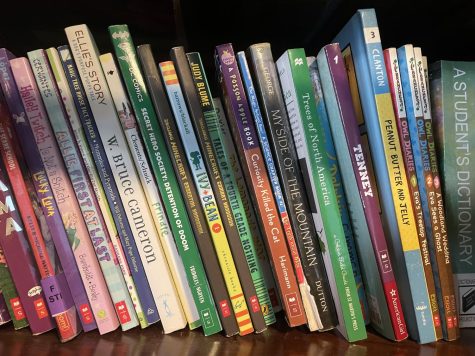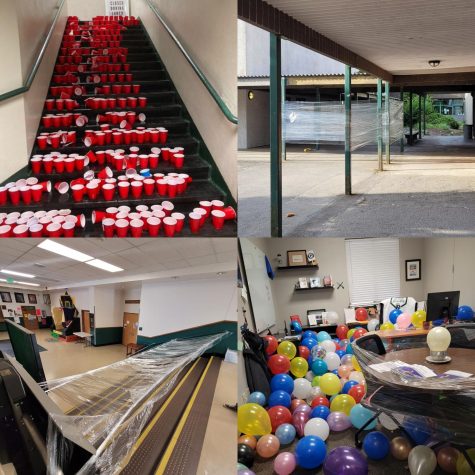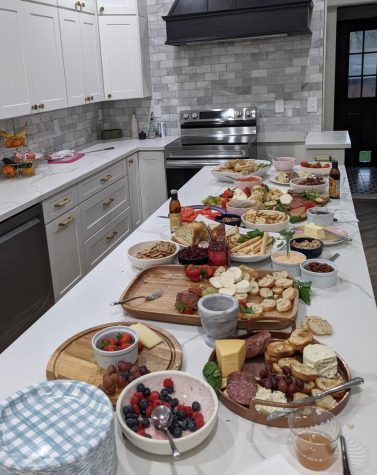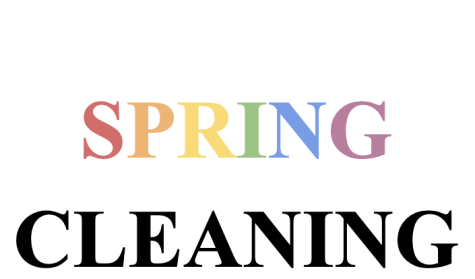Teacher Advice
Vector illustration in flat style
May 20, 2022
I believe one of the best ways to learn in life, especially in my adolescent years, is through advice from adults. And who are the adults kids are around the most in their lives (besides parents)? Teachers.
Teachers have become some of my favorite and most respected people; there are many that I highly admire as individuals. Particularly during the pandemic when school was virtual, watching teachers adapt to the new learning environment was amazing. If you are a student who is reading this, be thankful for your teachers! They do so much for us as students, and I don’t just mean academically.
This article is going to highlight some of PHS’s teachers and advice they have on the following question: “What is the most important idea you try to impart on your students?” This “idea” does not have to be academic; it could be a life skill, advice, wisdom gained through experience… anything that highlighted their values as individuals.
With that said, here are six important ideas from teachers around the school (and outside of it, as you will see).
Mr. Nugent (Social Studies)
“Everyone sees truth based on their own experiences. People are trying to live a life that’s true to them, and the wisest thing we can do is try to understand where other people are coming from.”
Mr. Nugent highlights an essential life skill in this quote: empathy. Remembering that everyone has come to this present moment through experiences that are infinitely different from our own is essential to forming strong bonds with others. Next time you run into someone acting a bit standoffish or rude, remember Mr. Nugent’s advice, and maybe you will be a bit more compassionate towards them.
Ms. Richards (English)
“The habit of thinking for themselves. That THEY can find/figure out the answers for themselves; they don’t need other people to tell them.”
Students will experience this idea first-hand in any one of Ms. Richards’ classes (as I and several other students are in AP Lit & Comp). An essential part of self-growth and identity, Ms. Richards reminds us to think for ourselves instead of following the “popular way” or “easy way”. When in doubt, follow your own instincts (unless they are really bad ideas)! We are wonderfully creative individuals capable of finding our own ways in life.
Ms. Rossing (Math)
Ms. Rossing had three key pieces of advice:
“1. They are all capable, competent, and intelligent human beings that can learn at high levels.
2. I want my students to know that every single one of them is capable of learning. It just requires hard work, persistence, curiosity, and resilience.
3.I also hope to impart the beauty and eloquence of mathematics and how studying the language of mathematics develops so many incredibly powerful life skills – reasoning, building strong arguments, looking for patterns, explaining reasoning, comparing multiple approaches, and using mistakes to deepen understanding.”
Ms. Rossing reminds us of the fact that we don’t need to be talented or gifted to learn something new. Just because you aren’t good at math doesn’t mean you can’t do good in math class! Hard work pays off, and putting in effort will create results, academically and in life. Rossing also reminds us that studying math yields benefits beyond the numbers: it paves the way for logical and creative thinking.
Mr. Kendall (Social Studies)
“One of the things that I most try to communicate to students is that they have immense agency in their lives and the ability to bring about the future that they want to see. Grades, relationships, career paths, and athletic achievements are almost entirely within their capacity to manifest and change. We have one life to live, and we can either [waste it] or we can make decisions moment by moment that bring us the greatest degree of freedom, compassion, and happiness possible. The study of history is awesome because it gives us insight into how other human beings have done this and their struggles and successes can be a great encouragement to us.”
The future is not entirely under your control, however Mr. Kendall tells us that we have more control over our lives than we realize. When it comes down to it, you get to choose your attitudes in life, and we can be either optimistic or pessimistic in solving our problems.
Mr. Hall (Art)
“That they have tremendous creative potential, even if they don’t realize it yet.”
Short and sweet, one of Hall’s most important values in and out of the classroom comes down to a 10-letter word: creativity. I myself have experienced this to be true in my Batik class, as Hall is always talking about our “creative potential” and encourages us to use it in every project.
Ms. Balera (Science)
For this last quote, I wanted to ask a teacher I highly respected, and despite the fact she doesn’t work here anymore, I wanted to hear her thoughts:
“1. Empathy/Compassion and being inclusive would be one of the most important things to try to teach my students. Without empathy, there is a lot of negativity that impacts so much of the lives of students’ peers. More importantly, you never know what one comment or gesture could do for someone…it could mean the world to someone (kindness obviously), or, it could really be detrimental to them (impolite). You never know what someone is going through.
2. Accountability would be the biggest skill I try to teach my students. Whether that’s being on time, finishing an assignment on time, studying etc. it really has to be your choice. I can and always try to give my students all the tools that they need to succeed in their courses, however, it has to be their choice to make the success they want in their academics. The phrase about leading a horse to water comes into play here – I can’t force you to do something, however having the internal drive to want to be the best version of yourself, I can encourage and help aid. This translates directly to the workforce/higher education, which is where you will end up one day.”
When it comes down to it, only you can set your soul on fire (aka, find the drive to thrive in life). In academics and, in a broader context, life, we must find what makes us excited to learn/grow, and what doesn’t. Ms. Balera (and all your other teachers!) are eager to help you on this journey, but can only assist you if you yourself want to develop as an individual.
All these quotes can resonate with us as students, and they can help us learn how to become who we want to be. I think oftentimes we forget that our teachers can help us outside of school, and answer questions that don’t just relate to mathematics or english, but to life itself.
Maybe next time the bell rings, think about this article before leaving your classroom. Having a little 5-minute conversation with a teacher about your life can be profound (or at least, I have found it to be).
Thank you, teachers, for all you do for us, and I will never cease to be amazed at your determination to educate those around you.














Tyler Nugent • May 20, 2022 at 1:33 pm
Great article, Aidan. Thanks for interviewing me!
Aidan Krisman • May 20, 2022 at 5:12 pm
Of course! I really appreciated your advice 🙂